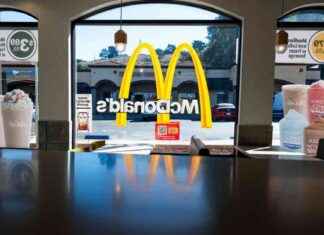Baltimore officials are preparing to launch a new $12 million fund for children and youth — a move that will create one of the largest grant-making operations in the city.
On Tuesday, City Council President Bernard C. "Jack" Young will convene a 34-member task force to create a framework to give out the money.
"This is a big deal," Young said of the fund. "It’s going to have a major impact."
The youth fund commits the city to setting aside more than $12 million a year for grants to community organizations that work with young people. That’s on top of the nearly $375 million the city already spends on schools, pre-kindergarten, after-school programs, libraries and youth health services.
The task force includes members of some of Baltimore’s most influential organizations, such as the Abell Foundation, Associated Black Charities, and Catholic Charities.
The co-chairmen of that task force are John Brothers, who oversees T. Rowe Price’s philanthropic activities, and Adam Jackson, the CEO of Leaders of a Beautiful Struggle, a Baltimore think tank that focuses on social activism.
In addition to electing new leaders, Baltimoreans voted Tuesday to require that city officials set aside millions of tax dollars each year for youth activities and programs.
The charter amendment for the Children and Youth Fund made the ballot after the City Council unanimously overrode Mayor Stephanie…
In addition to electing new leaders, Baltimoreans voted Tuesday to require that city officials set aside millions of tax dollars each year for youth activities and programs.
The charter amendment for the Children and Youth Fund made the ballot after the City Council unanimously overrode Mayor Stephanie…
"I’m really excited," Brothers said. "It’s bringing forth a large swath of voices in the city."
Brothers said the city’s youth fund will stack up against some of the largest private non-profits in Baltimore.
"You’re essentially creating the third or fourth largest grant-making institution in the city," he said. "This committee will try to make sure the funding gets back out into communities in a real serious way."
Jackson said his goal is to make sure grassroots, black-led organizations are positioned to get the funding.
"We can build capacity in the community instead relying on other people to that for us," he said.
Baltimore officials are asking voters to let them set aside millions of tax dollars in a special fund for youth activities and programs. But voters aren’t being told how officials will oversee the fund or distribute its money.
City Council President Bernard C. “Jack” Young, who sponsored the legislation…
Baltimore officials are asking voters to let them set aside millions of tax dollars in a special fund for youth activities and programs. But voters aren’t being told how officials will oversee the fund or distribute its money.
City Council President Bernard C. “Jack” Young, who sponsored the legislation…
The youth fund also represents a chance for Baltimore to move in a different direction from the conditions that led to the unrest of 2015, Jackson said. By investing directly in Baltimore’s African-American community, the city can make a real impact, he said.
"Fundamentally, we have an opportunity to change the way the resources are distributed," Jackson said. "If we’re serious about addressing systemic racism and poverty, the only response is investing in people and black-led organizations."
Passage of the fund didn’t come without controversy.
Former Mayor Stephanie Rawlings-Blake vetoed Young’s bill last year, arguing creating such a fund was fiscally irresponsible. She said dedicating tax dollars for the new fund would tie the hands of future mayors, and in tight budget years could force cuts to core city services.
Nevertheless, the City Council unanimously overrode her veto, putting the matter before voters, who passed it in November with 82 percent of the vote.
The city now faces a $20 million budget shortfall and is under pressure to increase its funding for Baltimore’s schools, which face a $130 million deficit. Mayor Catherine Pugh has argued that the public should consider the youth fund part of the city’s contribution to school children.
By law, the city’s contribution to the youth fund is determined by the value of its assessable property. The latest estimate of the city’s assessable base is $40.4 billion, which would mean $12.1 million for the youth fund. That amount could be supplemented by private donations, officials say.
Young said the goal of the task force is to research how such funds operate in other cities and make recommendations about how Baltimore’s should work.
The council president said he wants the task force to set up criteria for how officials should judge grant proposals, including a scoring system. He also wants to make sure at least two youths serve on the body that will award the grants.
"This youth fund is a great step," Young said. "I’m happy about it."
The task force’s first meeting will take place at 5 p.m. Tuesday at the Humanim American Brewery at 1701 N. Gay Street.
lbroadwater@baltsun.com
twitter.com/lukebroadwater
Our editors found this article on this site using Google and regenerated it for our readers.





